 Habs goaltender Ernie Wakely
Habs goaltender Ernie WakelyWhen one thinks of the Canadiens goaltenders of the 1960's, the names Plante, Worsley, Hodge, and Vachon immediately spring to mind. Little do Canadiens fans realize that the Canadiens goaltending prospect stable was never more full to overflowing than it was in the early 1960's.
The farm system begun by Frank Selke, and continued and grown by Sam Pollock, allowed the Habs to build up and turnover assets at an incredible rate. Pollock, with the NHL's competitive survival in mind, was one of the most persistant backers of a league expansion in which it would eventually double in size. Knowing full well this was about to happen, Pollock slyly stockpiled talent for future bartering when the needs would be called upon.
By the time the 6 new franchises arrived in 1967, Trader Sam had three hands full of cards to deal, and God knows what up his sleeve!
In the Canadiens affiliated farm teams of the era, there were no less than a dozen goaltending prospects of which to brag of from 1960 to 1965. Some would see action briefly with Montreal, others with the eventual expansion teams, and some would see their careers extinguish after brief flickers of success unsustainable.
Pollock made the best of most of their worth, packaging them for draft picks, futures, cash, and whatever it took to further the Canadiens goal of refurbishing and recycling talent annually.
Some of the names might sound familiar to older Habs fans. They were: George Holmes, Bob Champoux, Fern Rivard, Ernire Wakely, Jean Guy Morrisette, Andre Gagnon, Rocky Farr, Gil Banville, Ted Ouimet, Cliff Rose, Carl Wetzel, and Gerry Desjardins.
Here are their profiles.
Gerry Desjardins - In The System 1965-68

Goaltender Gerry Desjardins had a three year association with the Canadiens, playing for their Houston Apollos and Cleveland Barons farm teams. Desjardins went on to a successful seven-year NHL career, which most would agree could have been much longer had a serious eye injury not prematurely ended his career.
As a 20-year-old, Desjardins played major junior hockey with the Toronto Marlboros, playing in 53 games. He posted an impressive 32-4-7 record with a 3.81 goals against average.
Signed by Montreal the following year, Desjardins was tending goal for the Houston Apollos of the CPHL in 1965-66, playing in 19 games. He shared the netminding duties with veteran Marv Edwards and both were outstanding, but in a six team NHL, there were not many jobs for goaltenders. He played one more year in Houston, getting the start in 36 games.

For the 1967-68 season, Desjardins had hoped of landing an NHL job as the league immediately doubled in size to 12 teams with expansion. However, he was overlooked once again. So, Desjardins played with the Cleveland Barons of the AHL, and was clearly one of the major stars of the league. He played in 66 games, proving his workhorse abilities.
On June 11, 1968, the Canadiens traded the highly sought Desjardins to the Los Angeles Kings for first round draft choices in 1969 and 1972 that turned into Dick Redmond and Steve Shutt, respectively.
In 1968-69, Desjardins won the starting job with the Los Angeles Kings, one of the expansion teams from the previous year. He was thrown right into the fire, getting the start in 60 games.
On one of the worst NHL clubs that year, Desjardins again proved to be a bright spot, keeping the Kings competitive in many games and recording four shutouts.

Desjardins followed up his rookie season with a 43 game performance in 1969-70 and once again was the reason the Kings managed any semblance of respectability. At 26, just as things seemed to be moving along nicely in his career, the Kings obtained Rogatien Vachon in a trade with the Montreal Canadiens.
Vachon immediately took over the role as starting goalie, relegating Desjardins to backup. Late in the season the Kings traded Desjardins to the Chicago Blackhawks, but his playing time would not increase appreciably there either, with the presence of all star goalie Tony Esposito.
Nonetheless, Desjardins played in 22 games during the 1970-71 season, going 12-6-3 with a 2.41 goals against average.
In 1972-73, he was picked up by the expansion New York Islanders in the dispersal draft. That year he backstopped 44 games for Long Island, but as one would imagine with an expansion team, he lost more often than he won. The following year was also tough on the fledgling team, although their defensive game was aided tremendously with the drafting of a young defenseman named Denis Potvin. Desjardins started 36 games, going 9-17-6.

Although the club was making strides at improvement, it was difficult for a veteran netminder like Desjardins, so he opted to try his hand in the WHA, signing with the Michigan Stags for the 1974-75 season. But, the WHA turned out to be every bit as difficult as the NHL. In 41 WHA games, Desjardins was 9-28-1 with a 4.26 goals against average.
Late that same year, he returned to the NHL, joining the Buffalo Sabres. Sabres GM Punch Implach took advantage of a clause in Desjardins' contract with the Stags, which said he could leave the team if they moved - which they did - to Baltimore. In nine regular season games with Buffalo that season, Desjardins went 6-2-1, with a 2.78 goals against average before leading them all the way to the Stanley Cup finals, where they lost in six games to the Philadelphia Flyers.
Over the next two seasons, Desjardins was the number one backstop in Buffalo, playing in 55 and 49 games, respectively. Early in the 1976-77 season, Desjardins' hockey career came to an abrupt end, when a puck struck him the eye in a game against the Boston Bruins.
Carl Wetzel - In The System 1965-67

Wetzel's nomadic career began playing Junior hockey in Hamilton but he played a single game as a pro during his final season there. Over the next three years he played for five different clubs before putting his career on hold to fulfill his military obligations. Carl served in the United States Military during the 1962-63 season, and for most of the 1963-64 campaign.
Two years would pass before he returned to the ice, though he only played six games in his first year back. However, two of those contests were in the National Hockey League. Wetzel made two appearances in goal for the Detroit Red Wings but was victimized four times in just thirty-two minutes of play.

Wetzel was claimed by Montreal from Detroit in Reverse Draft, June 9, 1965 and sent to the Quebec Aces of the AHL. Wetzel joined the National team in 1966 and played in his first World Championships. Despite the fact that the U.S. squad finished fifth in the tournament, Wetzel was named to the tournament All-Star team. Later that season, he was sent to Minnesota by Montreal for cash on June 14, 1967.
Wetzel played five games for the North Stars and was able to register his only NHL win while also adding a tie to his career statistics. That season in the minors Wetzel backstopped the Rochester Americans to a Calder Cup championship. When he spent all of the 1968-69 campaign back in the minors, Wetzel returned to the National Team for the 1969-70 season.
After two years with the Nats and a second World Championship appearance he elected to continue his career in Europe. Wetzel signed on with Kitzbuhel of the Austrian League but after just one year there he was lured back by a contract offer from the upstart World Hockey Association.

Wetzel's final season as a pro was spent back in Minnesota, this time with their WHA franchise, the Fighting Saints. The Saints goaltending duties were split between Jack McCarten and Mike Curran with Wetzel playing just a single game. Though he was tagged with a loss in his final start, Wetzel played well giving up just three goals.
Cliff Rose - In The System 1965-67
Cliff Rose played for the Montreal Junior Canadiens in 1965-66 and 1966-67. He appeared in 23 games over two seasons in which his GAA was 3.69 and 3.77.
Ted Ouimet - In The System 1964-68

Goaltender Ted Ouimet played one game for the St. Louis Blues in 1968-69. He was a fine junior and minor pro player during a career that lasted over a decade.
Born in the Quebec mining town of Noranda, Ouimet played three years with the Montreal Junior Canadiens before joining the London Nationals in 1967-68. In June, 1968 he was traded to St. Louis Blues in a cash deal by the Montreal Canadiens, who had a surplus of talented netminders.
Ouimet played one game for the Blues during his rookie season in the pros but spent most of his time with Kansas City of the CHL. He continued to toil in the minors until 1975 and also played one game for the New England Whalers of the WHA. Before retiring after the 1974-75 season, Ouimet's best year was in 1973-74 when he recorded a 2.97 goals against average for the Syracuse Blazers and was names to the North American league first all-star team.
Gil Banville - In The System 1963-70

Goalie Gil Banville was a Canadiens farmhand who never rose beyond the minor leagues in a 9 year career.
Banville was born in Baie Comeau, Quebec on April 20, 1942, and was known mainly as a goaltender with the Quebec Aces from 1963 to 1970.
During his time in the AHL, Banville had four stays with Quebec, with trips to Jersey and New Haven of the EHL, Phoenix and Seattle of the WHL, and Houston of the CPHL.
Banville never had much opportunity to make it with the Canadiens. Playing ahead of him in Quebec and Houston were a cast future NHL veterans and AHL journeymen that included Charlie Hodge, Gump Worsley, Fern Rivard, Ernie Wakely, Rogatien Vachon, Carl Wetzel, Michel Beaulieu, Gerry Desjardins, Ron Gilbert, Jean - Guy Morrisette, Gary Bauman.
Rocky Farr - In The System 1963-70

Farr is the goaltender on the right.
Norman Richard "Rocky" Farr played 18 games in net for the Buffalo Sabres in the early 1970's. A fine amateur and minor pro goalie, he was unable to take hold of a permanent spot in the big leagues.
The Toronto native moved to Montreal as a teenager and played for the Notre Dame de Grace Monarchs and Montreal Junior Canadiens in 1963. In 1965-66 he returned to Ontario and spent two seasons with the OHA's London Nationals and Oshawa Generals. Farr bounced around the minors for three years before he was plucked off the Montreal Canadiens' surplus roster in the Expansion Draft by the Buffalo Sabres in 1970.

The young netminder split the 1970-71 season between the Springfield Kings of the AHL, the WHL's Salt Lake Golden Eagles and the Fort Worth Wings of the CHL. The next year he impressed at the Buffalo training camp and was slotted to play with their top farm team in the AHL, the Cincinnati Swords. Farr led all AHL goalkeepers with 52 appearances in 1971-72 and posted a solid 3.06 goals against average.
Farr played half a game for the Sabres in 1972-73 but otherwise excelled for the Swords and helped them win the Calder Cup. When veteran Roger Crozier was ailing in 1973-74, Farr was recalled to back up Dave Dryden. He posted a 2-4-1 record in 11 appearances but the Sabres were in disarray after a star forward Gilbert Perreault was lost with a broken leg. Farr played seven games for a much sronger Buffalo team in 1974-75 but his fate was sealed when Gerry Desjardins was acquired in the second half of the season. He played sparingly in the minors in 1975-76 before announcing his retirement.
Jean Guy Morrisette 1963-64

With a little more luck, the diminutive Jean Morissette might have tended goal for the Canadiens for a good part of the 1963-64 season. Morissette played in just one NHL game but it was a special memory for him, especially getting to play in net for the Montreal Canadiens.
The biggest game of Jean Guy Morrisette's hockey career took place on October 30, 1963 when he got the call to replace Gump Worsley, who was sidelined by an injury in the second period of a game against Toronto.
Morissette was Montreal's spare goaltender at the time, but had never been pressed into action until this day He was noticeably nervous in goal, accentuated by the fact he allowed four goals on 17 shots in what resulted in a 6-3 loss to the Leafs.
The lowest point in Morissette's career also came during the 1963-64 season.
In fact, it came but one day after his one and only game in the NHL. On October 31, 1963 he was hit in the face with a hard shot which broke his cheekbone. Morrisette would miss the remainder of the season.
The Canadiens loaned Morrisette to the New York Rangers for the balance of the season in 1964-65 as part of a Dick Duff - Bill Hickie trade, but unfortunately the goalie never saw game action.
Morissette continued to play goal for eight more years, the majority of which were spent in the AHL and WHL with various clubs. While still Canadiens property, Morrisette was claimed by Hershey of the AHL in a 1966 reverse draft.
His last two pro seasons were spent with the Grand Falls Cataracts of the Newfoundland Senior League. Both years Morrisette helped the team advanced to the Allan Cup championships.
Andre Gagnon - In The System 1963-65
Andre Gagnon played 47 games for the OHA Montreal Junior Canadiens in 1963-64, registering three shutouts and a GAA of 3:23. The following season he moved to the IHL, playing 37 games with the Muskegon Zephyrs, and finished out the 1964-65 season with the Cleveland Barons, appearing in 13 games. After a years absence from the games, Gagnon played for the Long Island Ducks and the Springfield Indians in 1966-67.
Ernie Wakely 1962-69

Goaltender Ernie Wakely owns one of the NHL's most dubious honours - and that's taking achievement to extremes.
Wakely's name is engraved on the Stanley Cup twice, with the 1965 and 1968 Montreal Canadiens.
Not too shabby for a goalie who's played all of two career games with the Habs. Even odder when one considers that those games were played in 1962 and 1969, respectively. It gets downright unreal at closer inspection. Wakely, a Canadiens farmhand goalie of seven years, had not even set foot in Montreal in the seasons for which he has been immortalized.
Such went Cup name engraving in the days before stringent rules were set about for such qualifications. Still, Wakely's erroneous honour fell through the cracks.
Truth be told, Wakely was a number, pure and simple, in a stacked Canadiens system in the 1960's. He played with the Montreal sponsored Houston Appolo's, sharing net duties with other Habs prospects such as Tony Esposito, Phil Myre, Gerry Desjardins, and Rogatien Vachon.

His tale is that of a journeyman goalie, awaiting opportunity, despite the effortless and dubious reaching of a pinnacle.
During Wakely's tenure in the Habs organization, he was given a round trip tour of the Canadiens sponsored teams of the 1960's.
Starting in 1961-62, Wakely saw action with the Hull Ottawa Canadiens, Kingston Frontenacs, and North Bay Trappers of the EPHL. He returned to Hull Ottawa for 41 games the following season but finished out in Spokane of the WHL, playing three games with the Comets. The high point of the season was a stopover with the NHL Canadiens, where he earned his first NHL victory, allowing 3 goals in the win.

In 1963-64, he split the season between the AHL Quebec Aces (8 games) and the CPHL Omaha Knights (59 games). He was stellar with the Knights, posting a 38-16-5 record, with a 2.93 GAA. Wakely began the next season in Omaha (11-3-1) before being promoted to the AHL, splitting duties with the Quebec Aces and Cleveland Barons.
Wakely made the same two cities his home in 1964-65, playing a game in each city in 1965-66, before finishing out with the WHL Seattle Totems.

With the NHL expansion on the horizon, Wakely was one of the more busier minor leaguers over the next three seasons. In successive years, he played in 70 games with the1966 Cleveland Barons of the AHL, 57 games with the Houston Apollos of the CPHL, and with the AHL Barons again for 65 games.

Along the road of 1968-69, he squeezed in a big time shot with the Habs, allowing 4 goals for his first NHL loss, only 7 seasons after his first NHL win.
Mercy finally arrived for Wakely on June 27, 1969, when the Canadiens dealt the 28 year old to the St. Louis Blues for Norm Beaudin and Bobby Schmautz.
The 1969-70 season provided the breakthrough Wakely needed. He appeared in 30 games for the Blues, registering a 2.11 GAA and four shutouts.

Wakely once stated that, "You can't judge a player until you've given him a chance to play in the big league."
It was also a pressure packed situation in St. Louis, having to take over from the legendary Glenn Hall. Wakely made the most of his opportunity, helping lead the Blues to the Stanley Cup finals, where they were defeated in four straight by Bobby Orr's Boston Bruins.
Building upon his first year success, Wakely backstopped the Blues to 20 victories the following season, starting 51 games in goal for St. Louis. By now, he had earned the reputation as being a solid NHL calibre goaltender, which was noticed not only by those in the NHL, but also scouts for the fledgling WHA.
The Winnipeg Jets, already in prized possession of the Golden Jet Bobby Hull, made an offer that Wakely could not refuse. It was also an opportunity to play professional hockey in his home province. For the next two years Wakely tended goal for the Jets before moving on to the San Diego Mariners six games into the 1974-75 WHA campaign.
After a brief 6 game stint with the Cincinnati Stingers in 1977-78, Wakely packed his bags for Houston where he finished out the season with the Aeros.
In 1978, Wakely went to the Birmingham Bulls in what would be his final professional season and also the swan song for the WHA. Just four teams would be absorbed into the NHL. Wakely realized that at the age of 39, the chances of his landing a job were slim at best, so he decided to call it a career.
Fern Rivard - In The System 1961-67

Fern Rivard was a career minor league goaltender until he was rescued by the 1967 expansion. He toiled in the Montreal Canadiens farm system with five different teams over 8 seasons before catching the break that would land him in the NHL.
Born January 1, 1946 in Grand'Mere, Quebec, Rivard moved steadily upwards in the Habs hierarchy, starting with the Quebec Citadelles (QJHL) in 1961. Two seasons later, still with the Citadelles, he was a first All Star team goalie, and repeated the feat the following year. At season's end in 1964, he made his professional debut with the AHL's Quebec Aces.

Rivard returned to the QJHL in 1964-65 for a fourth year, this time as a member of the Thetford Mines Eperviers. Even though he played in 19 games with Thetford Mines, Rivard did spend some time with the Montreal Jr. Canadiens of the OHA Junior "A" Hockey League.
Rivard spent the entire 1965-66 season with the OHA-Jr. Peterborough Petes. The 1966-67 season saw Rivard join the Muskegon Mohawks of the International Hockey League where he played in a career high 68 games, before having his NHL rights transferred to the Philadelphia Flyers after the NHL club purchased Quebec's AHL franchise.

Rivard returned to the Aces for the 1967-68 season and was claimed by the Minnesota North Stars at the end of the season in the Intra-League Draft. Although he spent the majority of the 1968-69 season with the Memphis South Stars of the Central Hockey League, Rivard made his NHL debut with Minnesota and played in 13 games that season.

When the 1969-70 season came around, Rivard played in 14 more games with the Stars, even though he spent the better part of his season with the CHL's Iowa Stars. Unable to warrant a call up to Minnesota in the next three years, Rivard became a member of the AHL's Cleveland Barons (1970-72) and Jacksonville Barons (1972-73) before getting his next NHL start during the 1973-74 season.
During the 1973-74 season, Rivard played in 13 games with Minnesota after being called up from the AHL's New Haven Nighthawks before making 1974-75 his last year of professional hockey.
Fern Rivard played in 55 career NHL games and finished with nine wins, 26 losses and eleven ties and a career 3.98 GAA.
Bob Champoux - In The System 1961-63

Goaltender Bob Champoux came up through the hockey ranks with relative obscurity, never really catching the eye of scouts, yet he managed to make it to the pinnacle of the hockey world, playing 17 games in the NHL.
Champoux played for the Palestre Nationale in Quebec in 1960-61, and in 39 games, picked up three shutouts and a 3.08 gaa.
In 1961-62, Champoux began a short affiliation with Montreal Canadiens sponsored junior clubs. He played in the only eight games of his major junior career, starting for the Montreal Junior Canadiens. In 1962-63, he returned to the MMJHL where he played with the St. Jerome Alouettes.
Thanks to a strong season with St. Jerome, Champoux earned himself a spot with the Cincinnati Wings of the CPHL the following year. He quickly established himself as the team's top goalie, and appeared in 60 games, sporting a rather lofty 5.60 GAA.
Champoux was called up by the Detroit Red Wings that year, but never actually dressed for game action, so although he was considered part of the team, he did not have any NHL games put to his credit.
In 1964-65, Champoux played four games with the Memphis Wings and one game with the Minneapolis Bruins of the CPHL before joining the Pittsburgh Hornets of the AHL for 13 games.
He remained in Pittsburgh for another year before being loaned to the WHL's San Diego Gulls by the Detroit Red Wings in September, 1966. As it turned out, the loan turned into a trade and Champoux remained in San Diego for more than three years before being temporarily loaned to the Kansas City Blues of the CHL for the loan of Gary Edwards.

Following a couple more years with San Diego, Champoux signed a free-agent contract with the NHL's California Golden Seals for the 1973-74 season. He played in 17 games that year, going 2-11-3 with a 5.07 GAA while playing for one of the worst teams in the league.
The balance of Champoux's season was spent in Salt Lake as a member of the Golden Eagles of the WHL, where he started 44 games and compiled a record of 23-16-3. In 1974-75, Champoux played for the Syracuse Blazers of the NAHL and the Winston-Salem Polar Bears, where he remained for another two years before retiring after the 1976-77 campaign.
George Holmes - In The System 1961-62

George Holmes was born in Niagara Falls where, with his father George Sr. coaching, he learned to play goal on the old Stamford Racetrack pond, and in the Hermes and Legion Hockey Leagues.
At age 14, he was given a chance to tend goal for the newly formed Jr. "8" Cataracts. Following a year of midget hockey, George was drafted by the Montreal Canadiens organization. He was assigned to the Peterborough Petes and two years later joined the Montreal Junior Canadiens.
In the 1961 -62 season, he won the Dave Pinkney Trophy awarded to the OHA goalie of the year. He completed his junior hockey with the Eastern Professional Hull Ottawa Canadians, and at the season's end joined the Niagara Falls Flyers as back-up goalie at the Memorial Cup finals in Edmonton.
With NHL expansion not yet reality, George chose not to pursue a professional career and returned to Niagara Falls where he has enjoyed many years coaching both Jr. "8" and Atom hockey and playing with local intermediate, old timers and recreational teams.
Holmes was inducted into the Niagara Falls sports Hall Of fame in 2001.




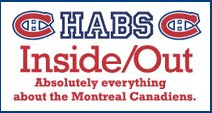





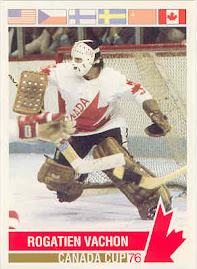
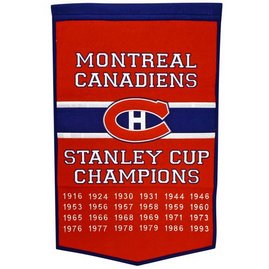







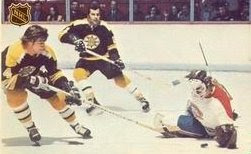



















































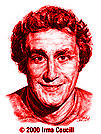



































































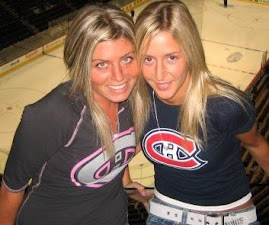
















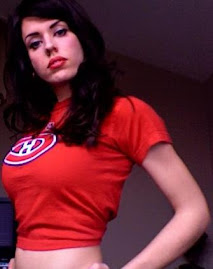

1 comment:
Again - enjoying your articles.
2 comments on recent ones.
I can never think of a shootout win or loss as a win or loss.I would like to see one point given to each team and a separate category of shootout wins that could be used as a tie breaker.
As to your article on 10 underrated Habs - here's 10 more:
Ted Harris
Terry Harper
Reggie Houle ( witness his tip pas in 1979 overtime)
Doug Riseborough
Gilles Tremblay
JC Tremblay
Charlie Hodge
Bill Nyrop
Phil Goyette
Post a Comment